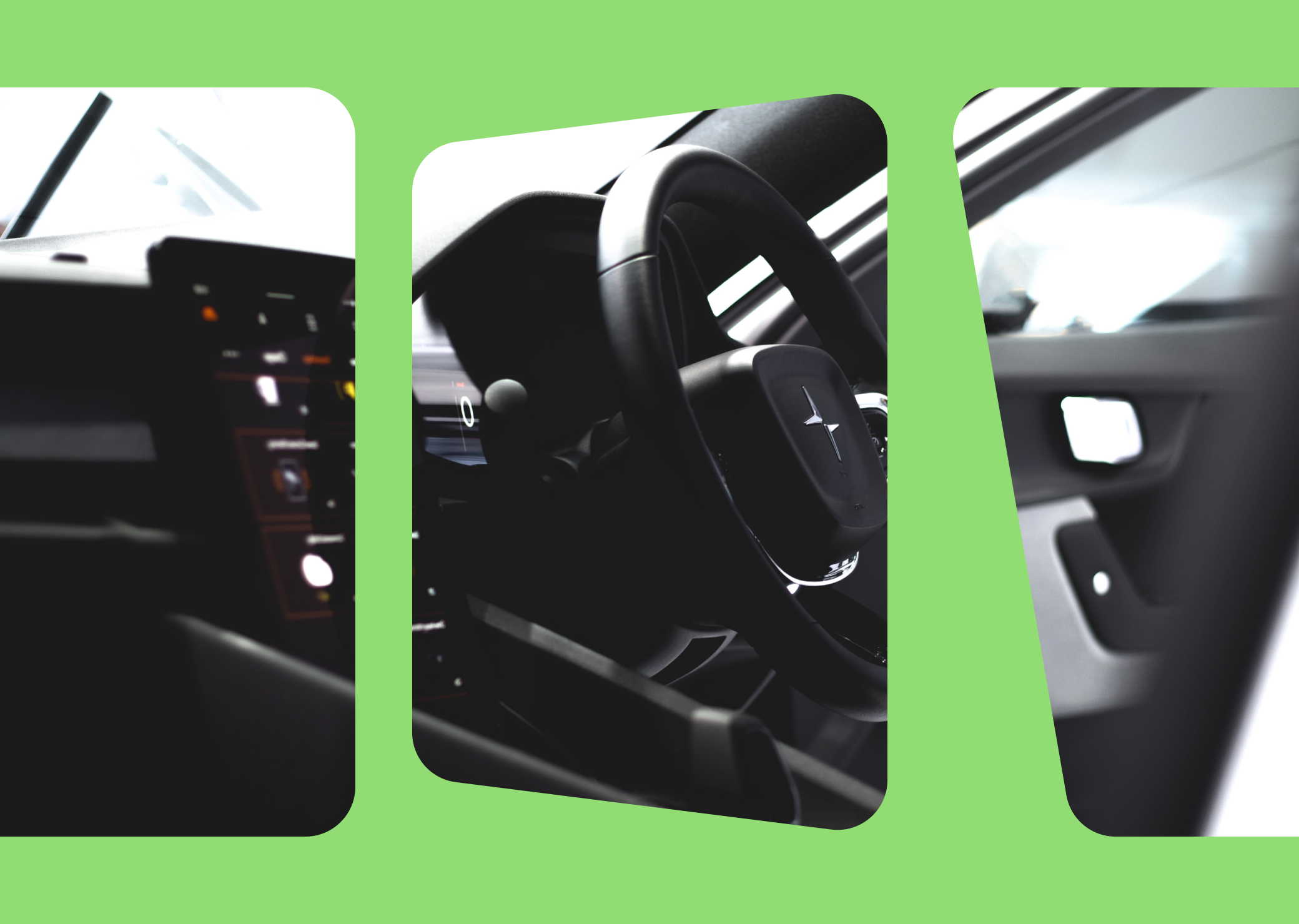- Carmoola
- Blog
- Cars and Gadgets
- A Beginner's Guide to Electric Cars
- 🗞 Cars and Gadgets
- Last updated: Feb 28, 2022
- 4 Min Read
A Beginner's Guide to Electric Cars
Written by

Verified by


See how much you can borrow in 60 seconds
| Representative Example | |
|---|---|
| Loan amount | £10,000 |
| Interest rate | 13.9% APR |
| 54 payments of | £246 |
| Total cost of credit | £3,284 |
| Option to purchase fee | £1 |
| Total payable | £13,285 |
Many car buyers in the UK are choosing electric cars over conventional petrol or diesel engine vehicles. Are you considering buying your own EV?
Check to see if an EV is the most suitable type of car for you. We’ve put together this beginner’s guide to electric cars. Let's begin!
What are electric cars?
EVs use electricity, either fully or partially, to power their wheels. Cars that have both electric motors and conventional diesel or petrol engines are called hybrid vehicles.
There are many types of electric and hybrid cars. But what’s common among them is that they produce little or no harmful gases into the atmosphere, making them an environmentally friendly choice for car buyers.
How Electric Vehicles Work
Electric cars have battery packs that provide power to their electric motors. The motors then drive either the front-wheel drive or the rear-wheel.
However, there are some EV models that have motors on all axles or even on all wheels. As for driving an EV, it’s actually not that complicated.
Electric cars have controllers that manage how much power gets delivered to the motor whenever you put your foot on the pedal. It helps control your speed while on the road.
The battery packs of electric vehicles are also easy to recharge. It is as simple as plugging them into a power source.
It’s also possible to recharge the battery packs as you’re driving the car, but this feature depends on the type of EV you have.
Electric Vehicles vs Hybrid Cars
Both hybrid and electric cars are types of EVs. The main difference between them is whether the car runs fully on electricity or if it has a combustion engine along with an electric motor.
Full-electric cars produce no exhaust and are the most eco-friendly type of car. Zero-emission vehicles do not have a combustion engine, so their wheels get power from the electric motor completely.
Types of Electric Vehicles
There are two types of zero-emission cars, one is called battery electric vehicles and the other, fuel-cell electric vehicles.
Battery electric vehicles have a big traction battery that needs to be charged into an external power source.
This is the more common type between the two zero-emission vehicles. These cars can also generate electricity whenever the vehicle brakes.
For fuel-cell electric vehicles, hydrogen is used and combined with oxygen in the air to produce electricity to make the car run.
Types of Hybrid Vehicles
Hybrid cars, on the other hand, produce some harmful gases since they still have conventional petrol or diesel engines, although not as much as traditional combustion-engine vehicles.
If you choose to drive a hybrid using only the electric motor, then the car will not produce exhaust. But this is only ideal for short drives in the city.
For longer journeys or when you’re battery is already low, you would have to depend on the combustion engine.
There are four types of hybrid vehicles.
Mild Hybrid
These cars use electric motors and batteries to assist their combustion engines. However, it cannot be driven by electricity alone.
Hybrid Electric
Under this type are two more sub-types, the series and parallel. What’s common between the two sub-types is that you can drive them using electricity only.
Their batteries are charged through braking and cruising, as well as through their diesel or petrol engines, not by plugging into an external source.
Plug-in Hybrid Electric
This type of hybrid is a car with larger batteries that can be charged externally. If you use your car for city driving more often than for long journeys, this is a good choice. You can then switch to using the combustion engine for road trips.
Range-extended Electric
These cars have wheels that are powered by electric motors directly. You may charge their batteries by plugging them into a power source.
The combustion engine for this type of hybrid is smaller though but you can still use it to drive on long journeys.
Should I buy an electric car?
An EV is actually a practical choice for a car, especially if you live and work in the city. When it comes to the cost of the electricity to power your EV, it can only be as little as 2p.
Also, if you buy an electric vehicle, you don’t have to pay Vehicle Excise Duty (VED), plus you get to enjoy an exemption from the surcharge for vehicles over a certain amount.
And then you have congestion charges that you don’t have to think about because electric cars are also exempt from that.
Of course, apart from all the practical benefits of owning an electric car, it’s much better for the environment. Enjoy the freedom and convenience of having your own car without contributing to the air pollution in your city! 👍🚘
See how much you can borrow in 60 seconds
| Representative Example | |
|---|---|
| Loan amount | £10,000 |
| Interest rate | 13.9% APR |
| 54 payments of | £246 |
| Total cost of credit | £3,284 |
| Option to purchase fee | £1 |
| Total payable | £13,285 |
Related articles
Can you get car finance without a driving licence?
Yes, some lenders offer car finance without a driving licence, but Carmoola requires a full UK driving licence to complete an...
Dealerships still dominate - but must adapt to shifting buyer expectations, report shows
New research* from Carmoola, the direct-to-consumer car finance lender, reveals a major shift in how UK consumers buy and finance...
PCP vs HP car finance: what's the difference and which is better?
When you're choosing between a PCP or HP car finance, the decision often depends on whether you prefer lower monthly payments or...

.webp?width=832&height=592&name=customer-support%20(1).webp)












.webp?width=400&height=285&name=online-shoppers-with-dog%20(1).webp)


.jpg?width=500&height=356&name=Vintage%20car%20going%20to%20an%20old%20town-1%20(1).jpg)





